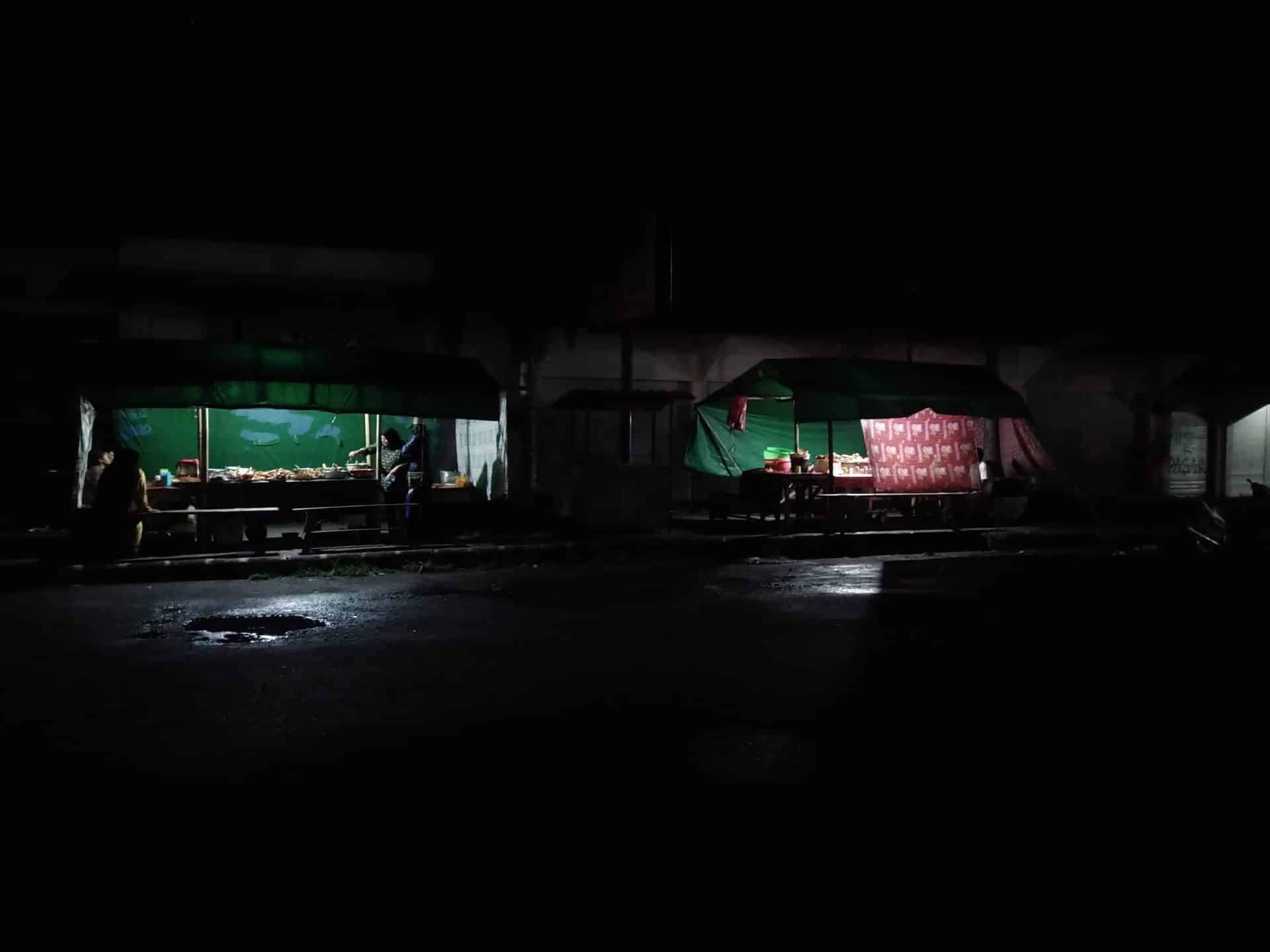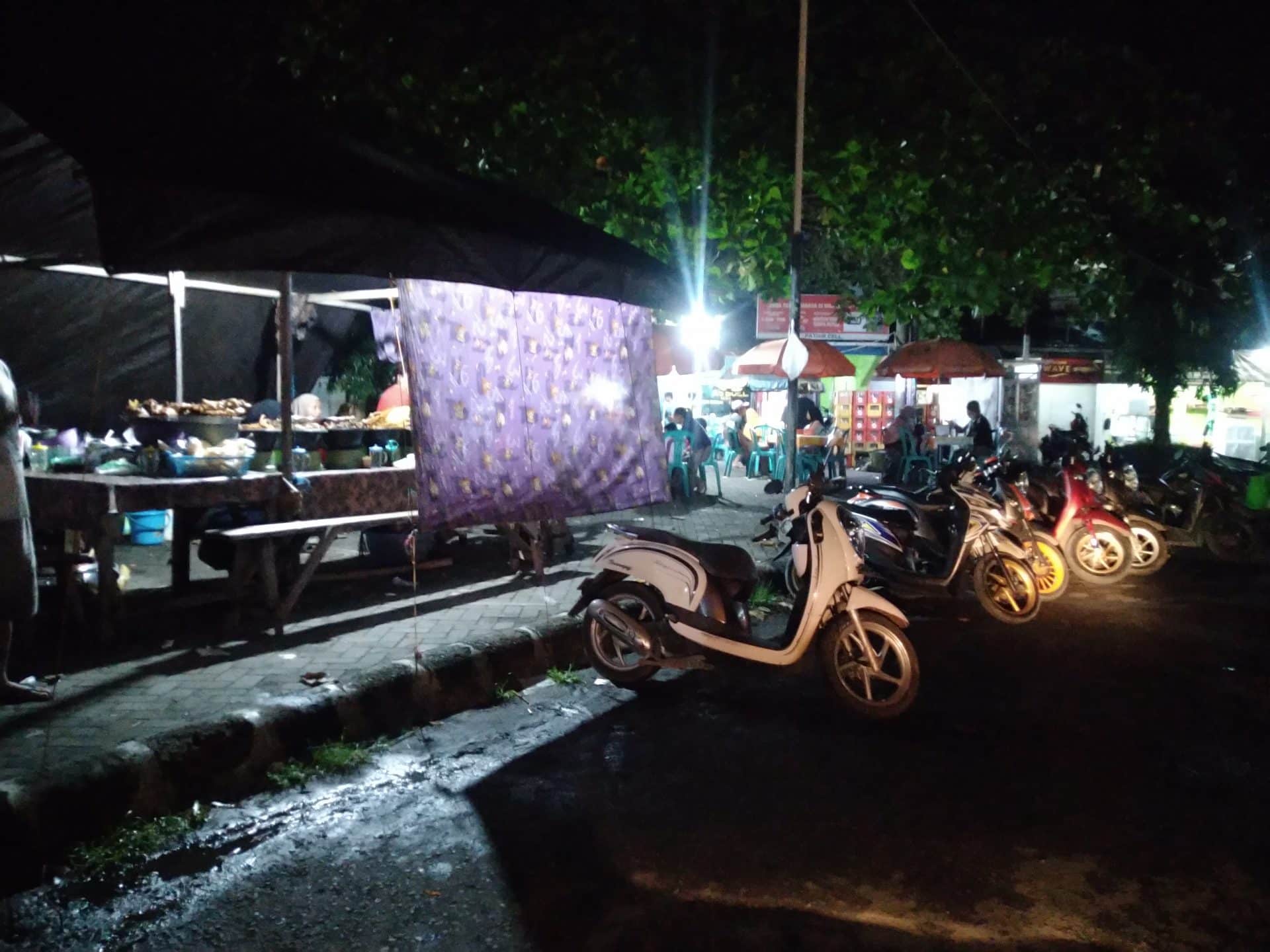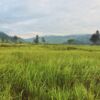Masbagik, The City That Never Sleeps
Photo: Riyana Rizki
A city, population 108,000, in eastern Lombok | 3,071 words
Translated from Bahasa Indonesia by Dan Benjamin
Masbagik is where I call home. Like all homes, it’s a storehouse of old memories. When I was young, maybe three or four years old, my mother, a teacher in a public elementary school, entrusted me to the care of an elderly woman named Papuq Iroq. Her house was right behind the main building of that school. From Monday to Saturday, the residential alleyways behind the school were my playground.
Not long after my mom first left me there, Papuq Iroq’s neighbours received dozens of just-slaughtered chickens, ready to be plucked of their feathers. The work was done by women of all ages. Three or four chickens would be placed in an iron tub, then immersed in boiling water. Those womens’ hands worked rapidly and skilfully, pulling out the chickens’ feathers. One woman took responsibility for one chicken at a time. It looked easy.
Because a friend I played with assisted her mother in this task, I joined in too. I can’t be said to have really helped, for the task’s true complexity soon became obvious. Hands enduring the boiling water, the chickens constantly getting cold, making the feathers harder to pluck. When this happened the woman plucking would ask another woman to pour extra boiling water over her chicken. Things went on like that until every chicken was stripped naked. Not at all simple work. Hours and hours singed by the heat emanating from those chickens’ bodies. Not to mention the risk of being splashed with the boiling water being poured.
Time passes – the lives of that family I stayed with are transformed. There’s already a bathroom in their house now. I used to get washed in a communal neighbourhood bathroom, before my mom would pick me up. I remember the well behind Papuq Iroq’s house, used by all the neighbours. Two bathroom stalls – with corrugated-iron walls, and roofless – stood right next to that well.
Many surrounding houses there have changed – while others have stayed the same. Some lives have been upturned – others go on much like before. It’s not a question of will. Not everyone here has the privilege of decent work.
The Masbagik I live in these days is one that’s growing fast – stimulated, like other areas of Lombok, by the economic development and tourism agendas. Even though the district is only 33 square kilometres and has just 107,893 people, Masbagik is not some antithesis of urban life, like all those stereotypes and caricatures of the ‘countryside’ would have you believe. Forget any romanticised images of village life, any notions of the ‘simplicity’ and ‘innocence’ of goings-on here. This isn’t popular fiction, or an Indonesian soap opera.
In Masbagik it’s more as if urban and rural lifestyles are integrated into the same place – as if both are contesting the same terrain. As time passes, this town is never the same: change is continous. But right now, the change feels like it’s gone up a notch – highways getting wider and smoother, houses and shops sprouting like saplings. My more tranquil, rural-esque childhood memories feel more and more unanchored by recent changes. Slowly but surely, the rural-urban mix is giving way to outright domination by the latter, the ‘city feel’ to life in Masbagik getting stronger and stronger, working its way into the town’s very bones.
And yet, this town is still not friendly to job-seekers. A lot of my friends, who went away, then returned with degrees, reported confusion as to how exactly to make a crust here. I felt it myself. Four years at the University of Mataram in Lombok, then two years at the University of Gadjah Mada (UGM) in Yogyakarta in Java made me long for my hometown. But on my return, I felt slapped by a reality I hadn’t much considered previously.
‘What can a literature graduate do in Masbagik?’ The question swirled mercilessly in my head.
With that, I said ‘welcome back’ to my Masbagik self. And to a place that had ceased being merely a vessel for my sepia-tinged memories of childhood and was now very much a part of contemporary reality.
One facet of that reality: agriculture in Masbagik is now in significant decline. Statistics from 2019 show 77% of this area is zoned as farming land – rice and other crops, plus smaller-scale gardens. Yet only 7% of people are still farmers. In South Masbagik, where I live, what used to be rice-fields have given way to shops and houses. I myself don’t have much to do with farming. But I’ll be disquieted if in the future there are no rice-fields or people working them in Masbagik.
The economy here is dominated not by industry but by commerce. The majority of young people in Masbagik are entrepreneurs – I suppose one might also just call them traders. You can see their world along both sides of the highway running through the middle of town. Things are so dynamic that I struggle to remember the names of the shops lining that road. The signatures on leases change fast, often inside a year. The Masbagik of a decade ago didn’t really have modern coffee-shops, either – now they’re sprouting up like mushrooms. Amid all the creative destruction, though, a few shops have remained unchanged: Toko Omega, which sells youth clothing, Herka, offering travel services and party rentals, and UD Makmur Jaya, which sells school supplies, sports supplies, and prayer-accessories for Muslims.
The waterfall hadn’t changed much since I’d been there 20 years ago. The only addition was a small pool built by the locals to collect some of the water pouring down from above, used as an additional bathing-place. And places to eat: when I was young, there weren’t warungs around the falls. Oh, plus a parking-lot.
All the commercial dynamism is because Masbagik is strategically-located. The main road through this town is also the road that connects all of Lombok island, so it’s never quiet. The road has two lanes, one running straight west, one east. West takes you to Mataram, capital of West Nusa Tenggara province, and the Lembar ferry that goes to Bali. East takes you to the port of Kayangan where you can hitch a ride to Sumbawa island. So Masbagik is a pit-stop for long-distance travellers. Apart from the usual cars and motorbikes this main road is also full of buses and small and large trucks.
Strangers come and go, brought in on the unceasing flow of highway traffic. That’s why there are so many warung selak. Warung in Bahasa Indonesia means a cheap and casual café, restaurant or diner; in Bahasa Sasak, a local Lombok language, selak means ghost. The name I suppose is because these eateries stay open throughout the night – 3am, 4am, 5am. The ‘ghost diners’ are a lifesaver for travellers, particularly truck-drivers en route to the port. They stop to eat and shake off the cobwebs. Our strategic position and the highway’s presence is not only beneficial economically, but makes the town extremely open to outside influences. Locals visit the ghost-diners, too – at least locals who crave a quick meal but can’t be bothered cooking. There’s nothing special about the menus: they sell beef soup served with rice, catfish with peanut sauce, a sweet congee-like porridge with mung beans and coconut milk, plus iced juice, iced tea and coffee. Usual warung stuff. What makes the ghost-diners stand out are their hours. To see people – visiting travellers, and locals – sitting in those tented restos lining the road at all hours adds to the urban aspect of the town’s vibe.
I’m a fan of the ghost-diners too – not because I’m a regular at them, but because they save me from anxiety if I’m coming home at night. I often have activities and obligations outside Masbagik until quite late. In other parts of Lombok, shops are closed by 9pm, and I start to feel anxious. But then when I enter Masbagik and see the streets still lively from the ghost-diners, I’m immediately relieved. This city that never sleeps is also a city that watches over me if I come home late.


When I returned here from Yogyakarta, I realised I was in a particular category of people – those lacking both entrepreneurial experience and capital. Like it or not, I became an employee, leveraging my degree to become a teacher at a private college. And I started working as a freelance writer on the side.
I haven’t really kept in touch with old friends, school friends for instance. The reason is simple. They’ll ask me about my personal life. Especially about marriage. And if they know that I’m still single at my age, which a majority of Indonesians consider over the hill, I’ll receive a barrage of unsolicited advice. So after my return to Masbagik I narrowed my social circle, for my mental health. I don’t need extraneous commentary. Life’s hard enough already.
Then there’s the label ‘wild’ that gets affixed to Masbagik youth. I haven’t been spared this either. When I first left Masbagik for Mataram, I was 17. A senior at the campus who was familiar with my hometown hissed:
‘You still a virgin?’
Naturally I was startled. As a homebody and relatively socially-inexperienced at that time, I felt put down, angry, ashamed. It felt like an attack. Back then I didn’t yet know the term ‘verbal sexual abuse’.
‘Cos, you know – Masbagik kids are loose’. The next installment.
The crux of it was the senior’s desire to belittle, his deliberate baiting. If only I’d known more about the different manifestations of sexual violence then, I would have defended myself and responded. But I was too surprised and too scared.
Let me explain. That question came because there’s a stereotype that a lot of teenage girls from Masbagik – whatever ‘a lot’ constitutes – have unwanted pregnancies. A gross generalisation. What, like that only happens in Masbagik? In my hometown, although economic development is more and more advanced, conservative norms remain on a pedestal. Religion remains people’s compass for how to act in the world.
There’s also a characterisation that Masbagik people like to make trouble – but that they also stand up for each other. This image, however, is not baseless. Years ago a handful of people brawled, which in the name of communal solidarity blew up into street-fighting spanning two districts. Solidarity, albeit wrongly-channelled. Ages ago now, but the label has stuck – and such passions aren’t wholly negative. I remember a viral video from a few months back. Flooding had hit much of Lombok, and the video showed Masbagik youth gathering aid supplies and volunteering to go into the disaster zones to help clear away mud. Masbagik is not a large place – but it’s not a narrow place either. It’s impossible for everyone in the district to know each other, yet there’s a solidarity here lacking in big cities where people prefer to walk alone. Some of the old rural ways still live on in my town.



